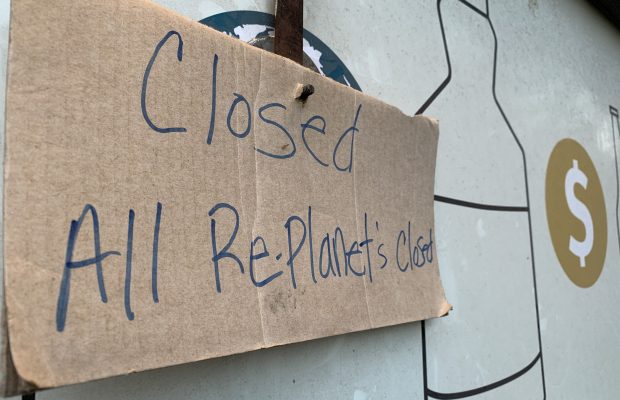RePlanet needs to RePlan it

RePlanet was California’s biggest recycling center chain, making up one-fifth of all centers, including Newbury Park, before its August shutdown. The lack of government attention towards environmental preservation has led to unsustainable recycling in the U.S. In turn, this has left recycling centers and the communities they affect devastated.
Without dependable recycling returns to rely on to save an extra penny, RePlanet’s shutdown is leaving low-income families and struggling businesses wholly compromised. The issue lies in the widely-accepted myth that modern recycling in the U.S. is sustainable.
When RePlanet first opened, local businesses that needed an outlet for their recyclables or cheap access to recyclable material flocked in its direction. The original exchange rate inspired huge mutual benefit, with local communities thriving. But, as Los Angeles Times reporter George Skelton and Recology reporter Eric Potashner warned back in 2018, “There’s no market for a lot of stuff in the blue bin… Revenue has fallen off the cliff.” RePlanet, like every other recycling center, depends on a healthy exchange rate internationally, created by non-domestic buyers. This, in turn, highlights the fundamental flaw of current American recycling centers: they are not capable of keeping up.
Recycling centers in California work like this: residents and businesses earn five cents for each recyclable item that they return, known as redemption rate. Those items then undergo processes to become purchasable recyclable material in the centers, then exported to America’s international buyers. But, as the world moves towards a cleaner future, American recycling centers are unable to meet new standards put forth by countries like China. While residents and businesses continue to donate at the same rate as before, recycling centers receive virtually nothing back from international buyers. These exchange rates then fluctuate as standards raise internationally. Yet, American environmental legislation, the only roadblock to effective recycling, remains stagnant through it all. Without any returns, governmental support or reform, these centers are unable to operate. Recyclable plastic that would regularly be processable is, too often, sent straight to the landfill without the manpower to make up the difference.
RePlanet is just one of the many examples of recycling centers that have met their death at the cruel hands of weak economic diplomacies, and definitely will not be the last. However, RePlanet’s loss is on a different scale of devastation, insisting governmental reform. Local businesses and populations in over 275 different locations, including Newbury Park, relied on these centers. The fact is, real people and companies subscribed and invested in it, and now no longer know what to do without it. Recycling has the opportunity and space to leave an actual improvement, but not if it the system stays statically riddled with the unsustainability coming inevitably from strained diplomacy and poorly designed environmental legislation. With the missing support and lack of care the government is directing towards the environment, soon, the very basis and only truly normalized and respected aspect of environmental preservation will turn as harmful as the rest.



